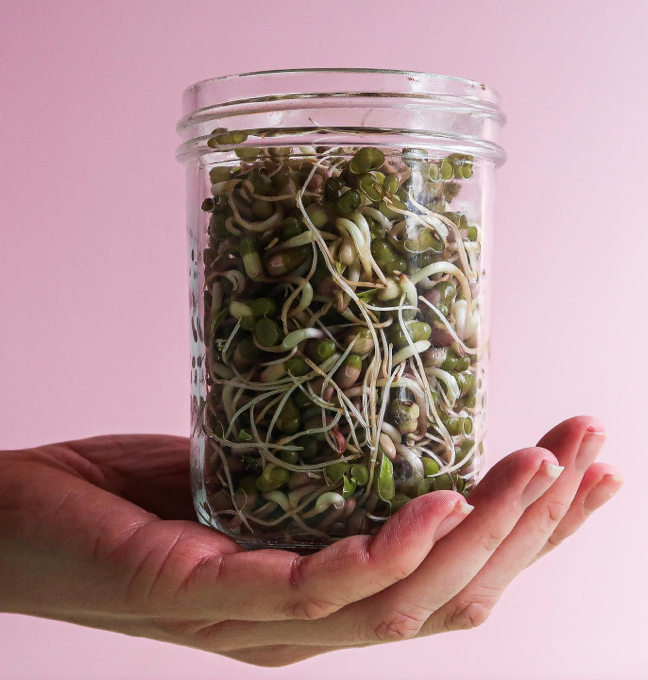Three lessons learned from building our Sustainable Food Ecosystem
Through thematic events, a thriving community, trend publications and accelerator programs, we bring over 250 pioneering entrepreneurs, innovators, investors, consumers, governments, corporates, and other organisations to accelerate positive change in the food sector. To learn from our shared experiences and continue to strengthen this thriving ecosystem, we decided to validate our guiding principles and monitor our impact with impact management coach Jeroen Wilms (Narrate) and our community of impact entrepreneurs and experts.
Scroll on to read what we learned from our endeavours:

1.It's essential to create and validate a Theory of Change
Impact Hub’s work method draws from many established theories and frameworks for engaging with diverse stakeholders, including DRIFT’s research on sustainability transitions and the Presencing Institute’s Theory U for systemic change.
Our way of working informed the food ecosystem’s Theory of Change: to accelerate positive change in the sector, we must curate a cohesive series of activities to help pioneering food entrepreneurs grow their businesses and impact.
These activities include our incubator and accelerator programs, networking sessions and thematic events, and food trend publications. In addition, we highlight the activities offered by our partners.
The result? A close-knit community and a supportive ecosystem for food entrepreneurs with innovative, industry-disrupting solutions.

2. Finetune your approach in close cooperation with the ecosystem
A topic-based ecosystem is more than just a network. It is an interconnected group of organisations performing complementary functions. In other words, in an ecosystem, we help each other achieve shared goals rather than participating for self-interest only.
So our ecosystem partners, entrepreneurs, innovators and other professionals are invaluable to finetuning our ecosystem approach. Thanks to their expert insights and contributions, we have continuously improved and adapted our Theory of Change (TOC), which we presented to a diverse audience during our Food Ecosystem Day in December 2022.
For instance, we invited alumni of our Food Pioneers Program incubator and Food Chain Accelerator to share complex data and soft reflections so we could assess the added value of ecosystem activities for participating food entrepreneurs.
We learned a great deal even in preparing these surveys: trying to operationalise all the TOC elements simultaneously. We challenged ourselves to prioritise key relevant insights we wanted to surface over other potentially exciting insights. We worked with a solid and replicable baseline set of questions to get consistent responses and derive actionable, clear and concise insights from the changes we observed over time.
Survey responses showed that, as a direct result of ecosystem activities, entrepreneurs reported an average 20% acceleration in their impact and business development speed. Imagine a car driving from point A to point B is an innovative food entrepreneur moving from the conception of their impact business (point A) to achieving their impact milestones (point B). In their initial response, one survey participant indicated moving at a symbolic speed of 110 kilometres per hour. Later, after joining various activities, they said their velocity had increased to 130 kilometres per hour.
As for growth in strategic partnerships, the number of investors, and connections with peers throughout the accelerator, our alums rated 50% of new connections as highly relevant and directly attributed these to our programs. In parallel to our surveys, we continuously track the investment raised by our alums: over the last 5 years, alums of our Sustainable Food Ecosystem programs have raised almost €15 million.
3. Guide entrepreneurs to choose between mainstream or niche positioning
When starting to build our topic-based ecosystems to fast-track the transition to a new economy, we believed bringing together impact entrepreneurs who share the ambitions of the food transition was very important. We have now validated this belief through evaluation and monitoring.
Unlike other startup and scaleup networks, the pioneering entrepreneurs in our Sustainable Food Ecosystem feel more supported and more connected by their shared drive to accelerate positive change in the food sector. Moreover, their ecosystem experience is invaluable and stimulating for founders who often feel lonely in their leadership roles.
Conversations about leadership and positioning to create change in the sector led us to improve our TOC substantially. We added and stressed the importance of a ‘positioning moment‘ when entrepreneurs decide whether to challenge mainstream ecosystem stakeholders with vested power or address a niche market. We have learned that both strategies are relevant but are often hard to combine. So we now help food entrepreneurs consciously improve their strategy and opt for a market position most suitable to their impact and business ambitions.
What's next for our Sustainable Food Ecosystem?
With these lessons learned, Impact Hub Amsterdam will continue to support innovative entrepreneurs leading the transition to a sustainable food system. As firm believers in the value of impact measurement, both for ourselves and our ecosystems, we will continue to monitor and share the impact of our activities. Stay tuned!
Would you like to learn more about our food ecosystem or other topic-based ecosystems? Contact our director Manon Klein.